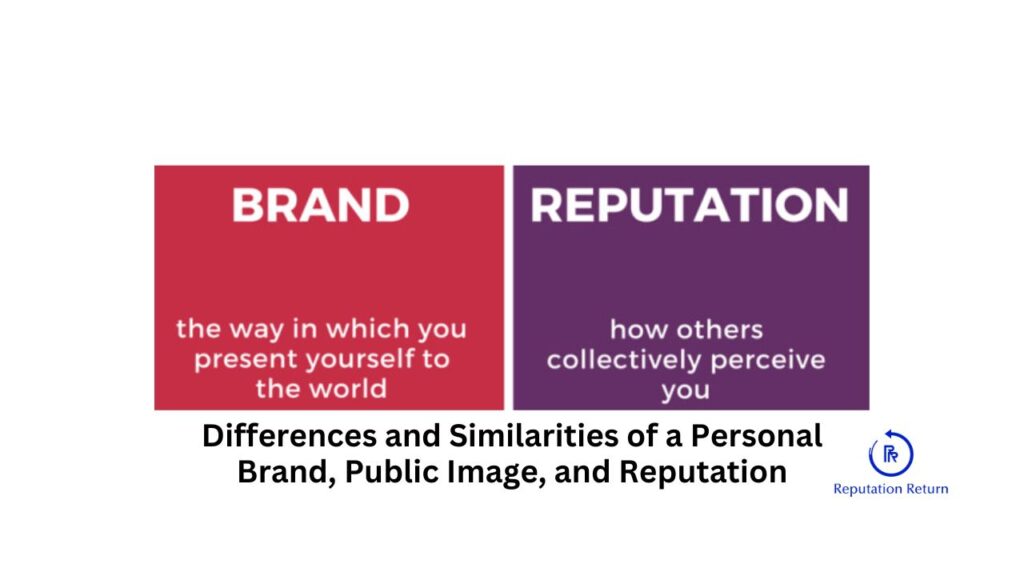Overcoming Challenges After Incarceration: The Role of Online Reputation Management

Rebuilding life after incarceration involves overcoming employment barriers, social stigma, housing difficulties, and psychological impacts. Success stories highlight the importance of job training, support networks, therapy, and legal assistance. Online reputation management services, such as Reputation Return, help ex-inmates control their narrative by suppressing negative information and promoting positive content. These services also enhance privacy by removing sensitive information online. By managing their online reputation, former inmates can regain confidence, pursue job opportunities, and rebuild their lives, taking meaningful steps towards a brighter future.
Rebuilding Your Life After Incarceration

Rebuilding life after incarceration involves acknowledging past mistakes, seeking legal expungement, and creating a positive online presence. Strategies include hiring Online Reputation Management (ORM) professionals, engaging in education, networking, and volunteering. Examples like Michael Santos, Frank Abagnale, and Shaka Senghor show the potential for transformation through blogging, writing, and community engagement. These steps can improve employability, reduce social stigma, and foster personal growth, helping former inmates overcome their past and build successful futures. Their stories demonstrate that with support and proactive efforts, it’s possible to reshape one’s personal brand, public image, and reputation.
Personal Branding, Public Image, and Reputation Management for Accountants and CPAs

For accountants and CPAs, personal branding, public image, and reputation management are essential for business success. Personal branding highlights unique skills and expertise, while public image focuses on maintaining professionalism and community engagement. Reputation management involves monitoring online presence and handling crises effectively. These elements build trust, attract clients, and provide a competitive edge in a crowded market. Examples include showcasing certifications, engaging in community service, and promptly addressing negative reviews. Overall, a well-managed reputation ensures client retention and acquisition, enhances credibility, and helps withstand potential crises, securing long-term growth and client satisfaction in the accounting industry.
Personal Branding, Public Image, and Reputation Management for Hair Stylists: Keys to Success

ChatGPT
In the competitive hair and beauty industry, personal branding, public image, and reputation management are crucial for hair stylists. Personal branding highlights unique skills and styles, attracting clients seeking specific services. Public image, shaped by marketing and community involvement, builds trust and loyalty. Reputation management involves monitoring and responding to online feedback to maintain a positive perception. These elements collectively attract and retain clients, ensure satisfaction, and provide a competitive edge. Investing in these areas helps stylists differentiate themselves, build a loyal client base, and achieve long-term success in the market.
Personal Branding, Public Image, and Reputation Management for Restaurants

Personal branding, public image, and reputation management are vital for a restaurant’s success. Personal branding highlights unique aspects, such as a chef’s philosophy or the restaurant’s ethos, helping to attract a specific clientele. Public image, shaped by marketing and customer experiences, ensures the restaurant remains recognizable and trustworthy. Reputation management involves monitoring and responding to reviews, managing crises, and maintaining a positive online presence. For example, Shake Shack excels in reputation management by addressing customer feedback promptly. Integrating these strategies helps restaurants stand out, build customer loyalty, and foster a strong, positive presence in the competitive food industry.
Personal Branding, Public Image, and Reputation Management for a Yoga Instructor

For yoga instructors, personal branding, public image, and reputation management are essential for success. Personal branding highlights unique qualities and specializations, setting instructors apart in a competitive market. Public image, shaped by social media and community involvement, enhances visibility and trust. Reputation management involves addressing feedback and maintaining positive interactions to foster loyalty and attract new students. For example, a yoga instructor can build a personal brand around eco-friendly practices, engage with students on social media, and address negative feedback promptly. Together, these elements ensure a thriving, respected yoga business.
Understanding Differences and Similarities of a Personal Brand, Public Image, and Online Reputation for a Private Investigator (PI)

A private investigator’s (PI) success hinges on a well-managed personal brand, public image, and reputation. A personal brand showcases unique skills and values, setting the PI apart from competitors. Public image is shaped by external perceptions, influenced by media, client interactions, and online presence. Reputation, built over time through consistent performance and ethical conduct, is crucial for client trust and business sustainability. All three are interconnected and vital for attracting and retaining clients. Online Reputation Management (ORM) plays a key role in monitoring feedback, managing social media, creating positive content, and handling crises to protect and enhance the PI’s professional standing.
Differences and Similarities of a Personal Brand, Public Image, and Reputation

A personal brand reflects how individuals present themselves to the world, emphasizing unique skills, values, and experiences they wish to be recognized for. A public image is the perception others have of a person, shaped by media, public appearances, and social interactions. Reputation is the broader consensus about a person’s character and behavior over time, influenced by both personal and public actions.
While all three relate to how an individual is perceived, a personal brand is self-crafted, a public image is externally formed, and reputation is the long-term culmination of one’s actions and public interactions.
Online Reputation Management for the Fitness Industry

Online reputation management (ORM) is vital for fitness businesses to attract new clients and maintain a positive image. Key strategies include managing and responding to reviews, optimizing for search engines, and active social media engagement. For instance, addressing negative feedback by updating facilities and retraining staff can improve ratings. Encouraging positive reviews and removing false negative ones also enhance reputation. Effective ORM helps gyms build credibility, increase revenue, and retain clients by demonstrating commitment to customer satisfaction and continuous improvement. Implementing these strategies ensures a strong online presence, crucial for business growth in the competitive fitness industry.
Reputation Management for Gym Owners

Gym owners must prioritize reputation management to attract and retain members and maintain a strong brand. Strategies include monitoring reviews on Google My Business, Yelp, and social media, encouraging positive reviews, and promptly addressing feedback. Maintaining high service standards and community engagement further enhance reputation. An example is a gym implementing an anonymous feedback system and organizing community events to foster positive online and offline perceptions. Negative feedback can cause stress and anxiety, making prompt resolution crucial. Legal measures like DMCA takedown requests and hiring an ORM company like Reputation Return can effectively manage online defamation and protect the gym’s reputation.
